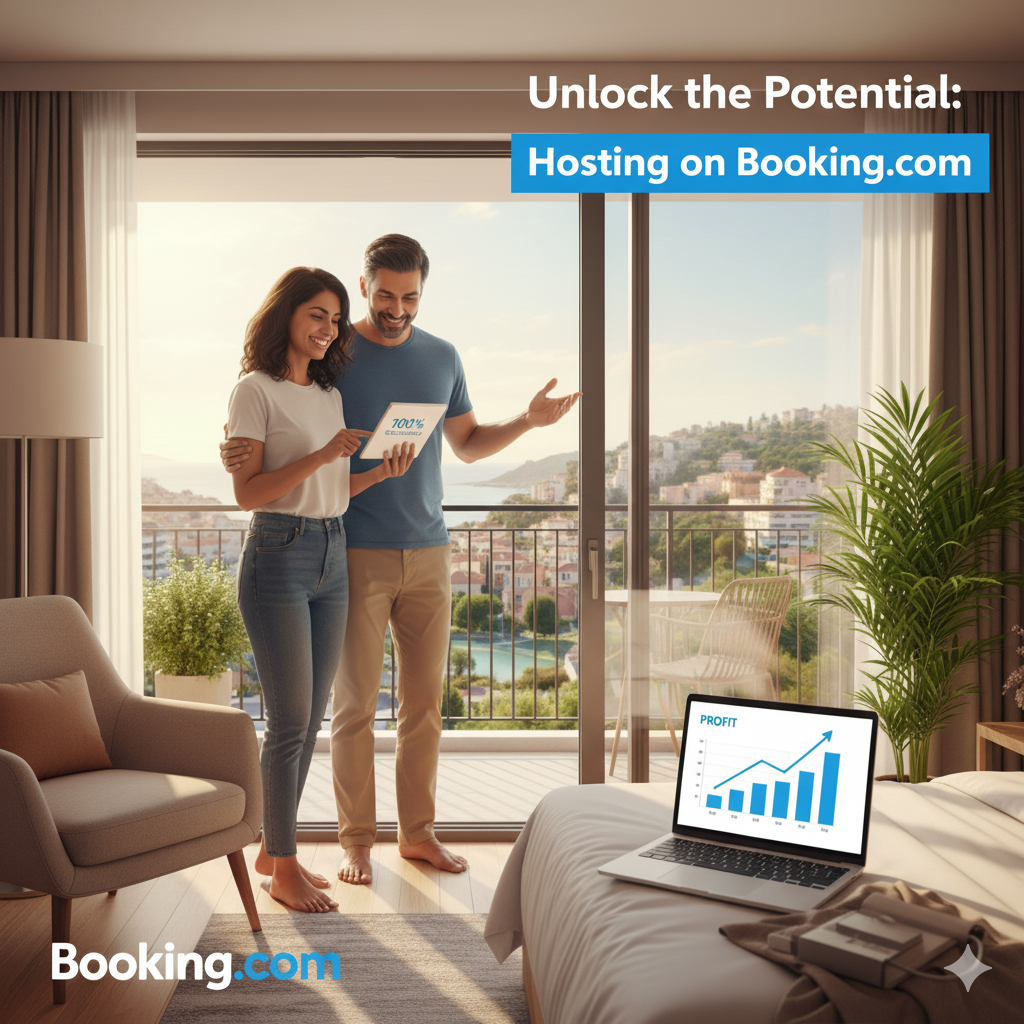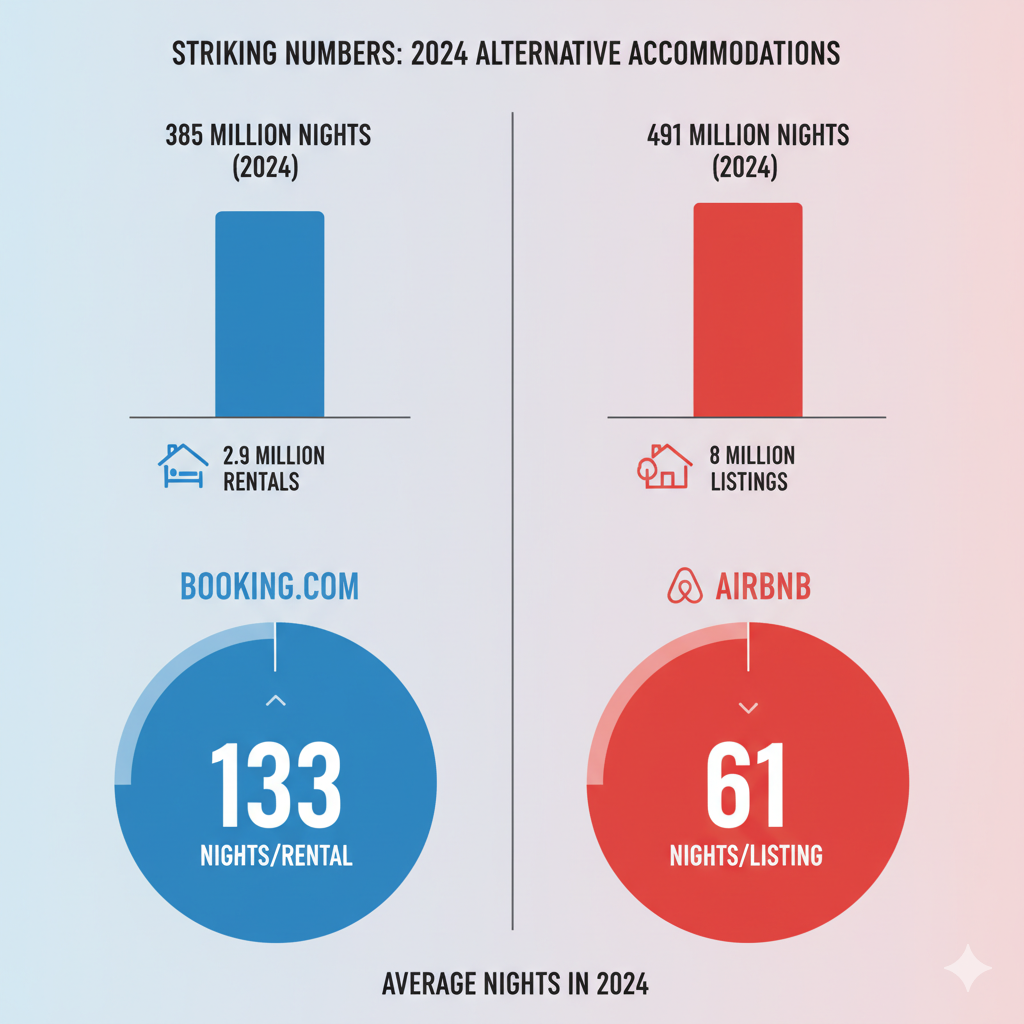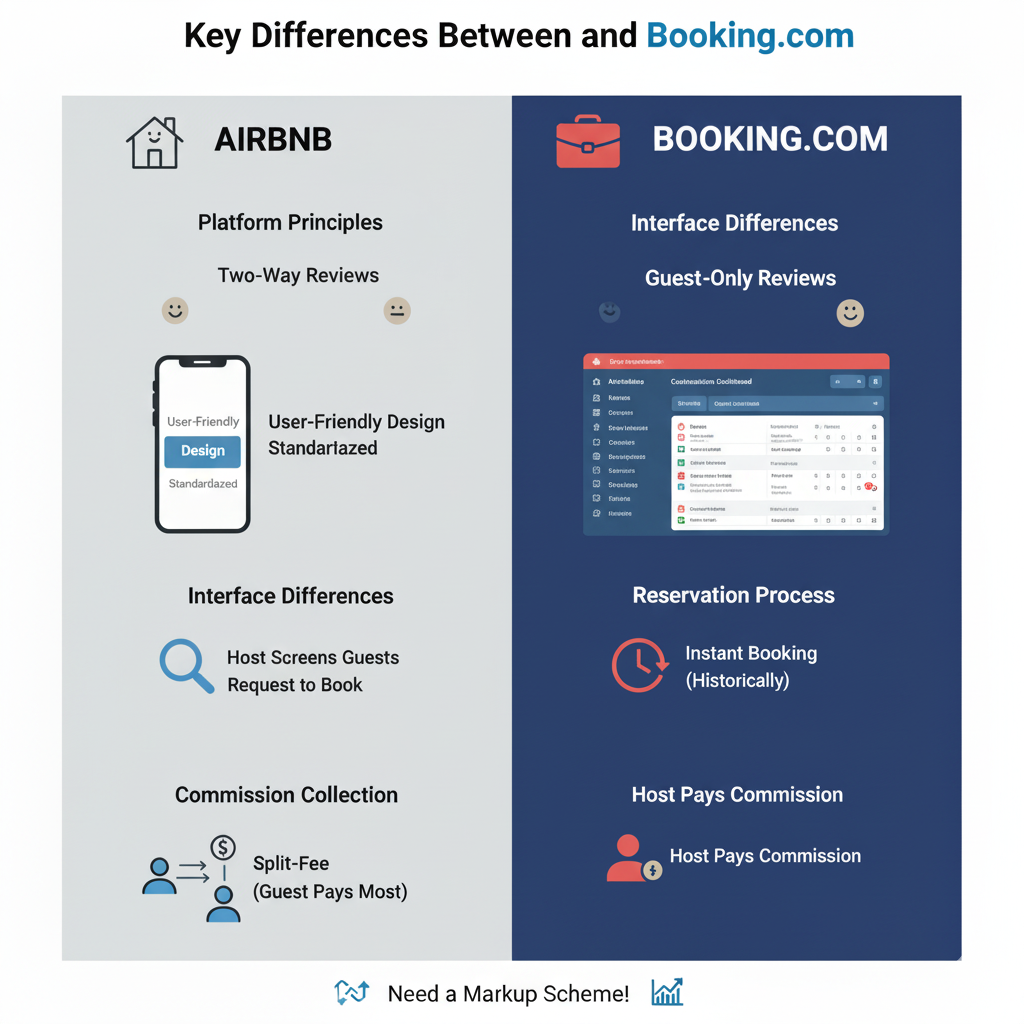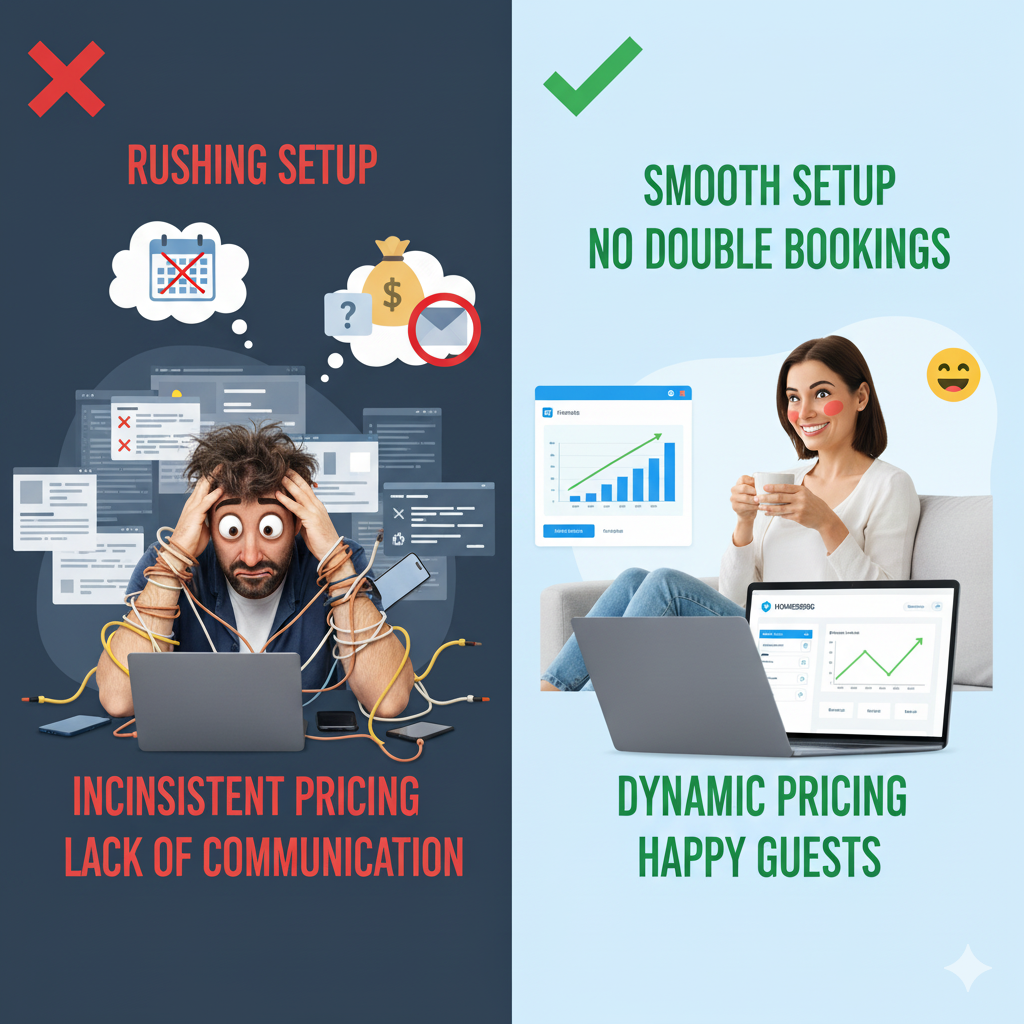Hosting on Booking.com

Key Takeaways
- Yes! You should definitely try hosting on Booking.com to increase visibility, bookings, and eventually revenue. It also reduces your reliance on Airbnb.
- Be careful and dedicate proper time to the initial configuration. It is more complicated and customizable compared to Airbnb, but don’t worry — it’s a one-time task.
- Adjust your markup, minimum stay rules, and cancellation policies properly to avoid discrepancies among channels.
- Obtain a solid understanding of promotions if you plan to use them extensively, especially the Genius program, which can provide dynamic discounts to different guests.
- Use payment processors that check credit card validity, or let Booking.com collect payments for you.
Why You Should Be Hosting on Booking.com
Hosting on Booking.com is part of the short term rental world. Booking.com, the flagship of Priceline Group, is an online travel agency with a massive customer base. While the platform is predominantly known for hotel bookings, it has been rapidly moving into short-term rentals and vacation rentals — which they call “alternative accommodations” — over the past few years.

Here are some striking numbers:
- In 2024, Booking.com’s alternative accommodations captured 385 million nights (excluding hotels).
- Airbnb, in comparison, recorded 491 million nights.
- Booking.com achieved these numbers with 2.9 million rentals, whereas Airbnb needed nearly 8 million listings to reach 491 million.
This means that, on average, a rental on Booking.com received 133 nights in 2024, compared to 61 nights on Airbnb.
In short: if you are hosting professionally, there is a significant opportunity on Booking.com.
Key Differences Between Airbnb and Booking.com
Hosting may sound similar across platforms, but there are important distinctions every host should understand to set expectations and maximise returns.
 Interface Differences
Interface Differences
If you are coming from Airbnb, you will likely be shocked — and perhaps annoyed — with Booking.com’s interface. Unlike Airbnb’s user-friendly design and standardized features (like cancellation policies and pricing structure), Booking.com allows a wide variety of customizations through complex setup menus.
Platform Principles
Airbnb started with a naïve approach: open your house, make your guests feel at home, and provide a local touch. Booking.com, on the other hand, has been a business-driven platform from day one.
On Airbnb, reviews are two-way — both hosts and guests can leave feedback. On Booking.com, only guests can leave reviews.
Reservation Process
Instant booking used to be the only option on Booking.com. Unlike Airbnb, where hosts can screen potential guests, Booking.com has only recently (2024) introduced a “Request to Book” option for homeowners — a clear attempt to capture market share from Airbnb.
Commission Collection
Although coming to an end soon, Airbnb has historically reflected most commission fees onto guests under the split-fee structure. Booking.com, however, collects platform fees directly from the host.
To ensure consistent income across channels, you need to use a markup scheme (like Homesberg’s) to balance commission differences.
Additionally, Booking.com allows hosts to pay for visibility by increasing commissions. There are reports that Airbnb may explore similar monetization strategies.
👉 Check our blog post about Airbnb’s removal of the split-fee structure and its extra revenue strategies.
How to Create a Listing on Booking.com
Creating an account and setting up a property is straightforward:
- Go to the Extranet.
- Set up a host account.
- Create your listing.
- Configure booking policies, prices, and payment preferences.
If you already host on other channels (Airbnb, VRBO, or even your own website), you can pull in much of the information, saving time.
Key Steps to Pay Attention To
- Configure your rate plans
All listings start with a standard rate. You can build customized plans on top of it. It’s best to anchor new plans to the standard rate for convenience. - Adjust cancellation policies
By default, Booking.com assigns flexible cancellation (guests can cancel anytime). Select or create the policy that suits you best. - Double-check minimum stay rules
When copying from other platforms, check these carefully. Many first-time users accidentally receive 1-night bookings they didn’t intend. Also, if you don’t adjust weekly/monthly plan settings, you could end up giving long-stay discounts on short bookings. - Set prices and fees
Add extra fees (e.g., late checkout, cleaning, linens) under Property Policies. Nightly rates are adjusted under Rates & Availability → Calendar. For multi-channel hosting, the easiest approach is to use a dynamic pricing tool connected to a PMS. Homesberg offers both built-in. - Optimize your property page
After setup, go to the Property section and follow improvement suggestions. Also explore the Opportunity Center under Boost Performance. - Set up finance settings
Payment options include charging guests directly, withdrawing from credit cards, or letting Booking.com handle payments (for a 1.9% fee). We recommend either verified processors or letting the platform manage payments to avoid fraud.
Common Mistakes When Hosting on Booking.com

1. Rushing Setup
This is a one-time effort. Take the time to configure cancellation policies, rate plans, minimum stays, extra fees, and payments correctly. After going live, double-check your property page from a guest’s perspective.
2. Risking Double Bookings
If you don’t use a channel manager (like Homesberg), you can sync calendars via iCal. However, iCal updates only every few hours and is prone to delays. A channel manager is far more reliable.
3. Inconsistent Pricing
To maximize revenue, you must adjust prices frequently for seasons, weekends, holidays, and events. Doing this manually across multiple platforms is tedious. Homesberg’s built-in dynamic pricing engine automates this daily, pushing updated rates to all connected channels with markups for price parity.
4. Lack of Guest Communication
Booking.com guests are used to hotel-like stays and may have different expectations. Contact guests promptly after bookings to clarify details and ensure smoother experiences.
Conclusion: Hosting on Booking.com
Booking.com is the world’s largest OTA with a rapidly growing presence in short-term rentals. With proper setup and management, it can significantly boost your visibility, occupancy, and revenue.
About Homesberg
Why juggle five tools when one is enough? Homesberg brings dynamic pricing, ranking checks, and channel management under one roof.
Homesberg is an all-in-one vacation rental management platform built around the must-have features hosts truly need: self-reliant market data collection, an Airbnb ranking tracker, a robust dynamic pricing engine, and seamless integrations with all major channels. No more juggling multiple tools or paying for underutilized features.
Sign-up now to start your free trial.
